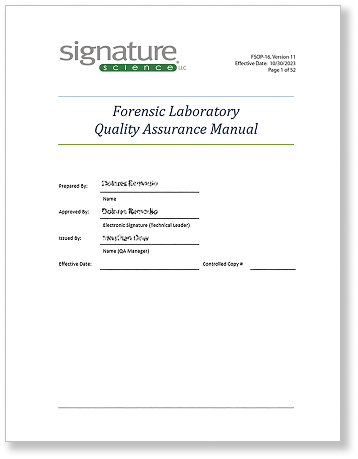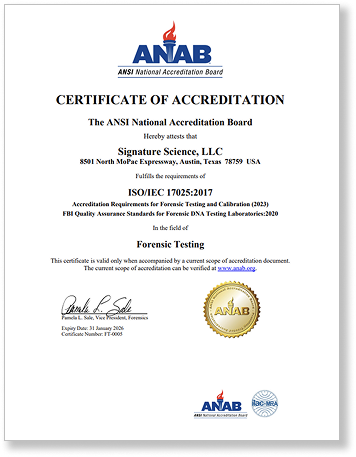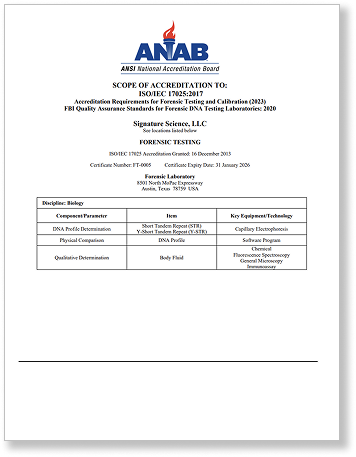Welcome
We’re glad you’re here. On this page you will find everything you need to begin, execute, and grow your laboratory casework outsourcing relationship with us. Let’s get to work.
Securely Access Your Files
We have created a secure document repository containing your DNA analysis reports and the most up-to-date versions of our laboratory SOPs. Log in using your unique customer credentials to access your files.
Don’t have an account? Need account help? Contact Us.
Request a Quote
Whether it’s your first time working with us, or you need pricing for a service outside the scope of your existing contract, we’re ready to assist you. Enter information about your case and an analyst will contact you promptly to work out the details and provide a competitive quote for the most appropriate services.
Submit a Case
Once you have received a quote for services, download and complete the appropriate case submission form provided on this page. Our analysts will use these forms to process your case and generate your reports.
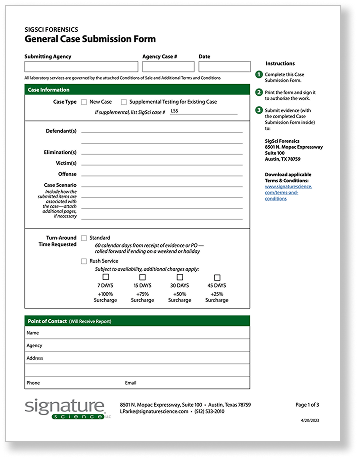
General Casework Form
For submission of evidence to our Casework Laboratory, located at our Austin, TX Headquarters.
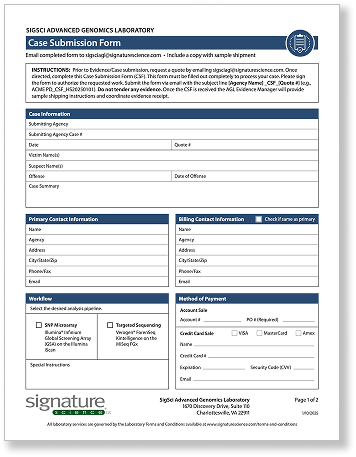
FGG Casework Form
For submission of evidence to our Advanced Genomics Laboratory located in Charlottesville, VA.
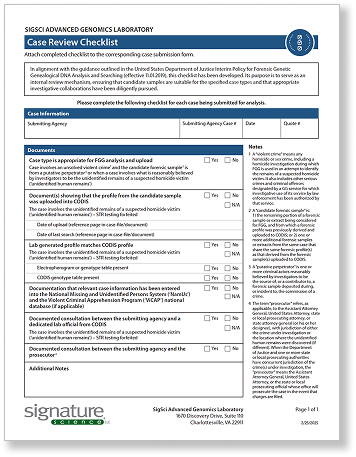
FGG Case Review Checklist
Ensure your case is eligible for FGG DNA Analysis and Searching. Return with the FGG Casework Form.
Request Discovery
Complete this form to submit a discovery request for your case. Our laboratory director will review the request and provide the required information by email.
STANDARD DOCUMENT PACKAGE INCLUDES:
- All processing notes and worksheets
- Chain of custody records
- Quantification data
- Electropherograms when present (EPG raw data .hid files must be opened with GeneMapper ID-X software)
- STRmix reports and deconvolution files
- PhotoDocumentation when present
- Incident reports (if applicable)
- Case notes (if applicable)
- External communications log (if applicable)
- Reporting analyst’s Statement of Qualifications
Indicate on the discovery request form if you require information outside this scope.
Supporting Documentation
The defensibility of forensic evidence depends on the reliability of the laboratory methods used. To support transparency and confidence in your results, we provide access to our standard operating procedures (SOPs), method validation studies, and current accreditation documentation. These materials demonstrate that all testing is performed in accordance with rigorous, industry-recognized scientific standards.
Validations
Researchers at Signature Science’s Center for Advanced Genomics have performed internal validation studies to support our Forensic Laboratory’s FGG offerings.
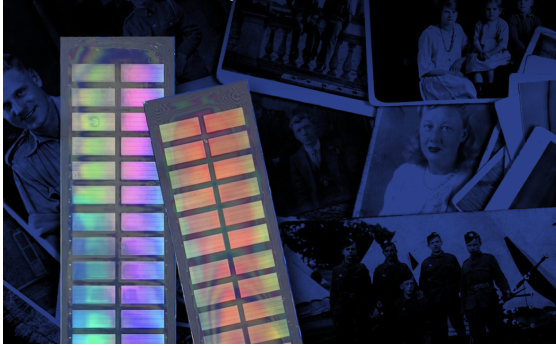
Industry First! Micro Array Developmental Validation
CAG scientists were the first to conduct a developmental validation of the Illumina® Infinium® Global Screening Array (GSA) on the iScan® system for use in forensic laboratories guided by the Scientific Working Group on DNA Analysis Methods (SWGDAM) Validation Guidelines for DNA Analysis Methods and Federal Bureau of Investigation (FBI) Quality Assurance Standards (QAS). Read Preprint.
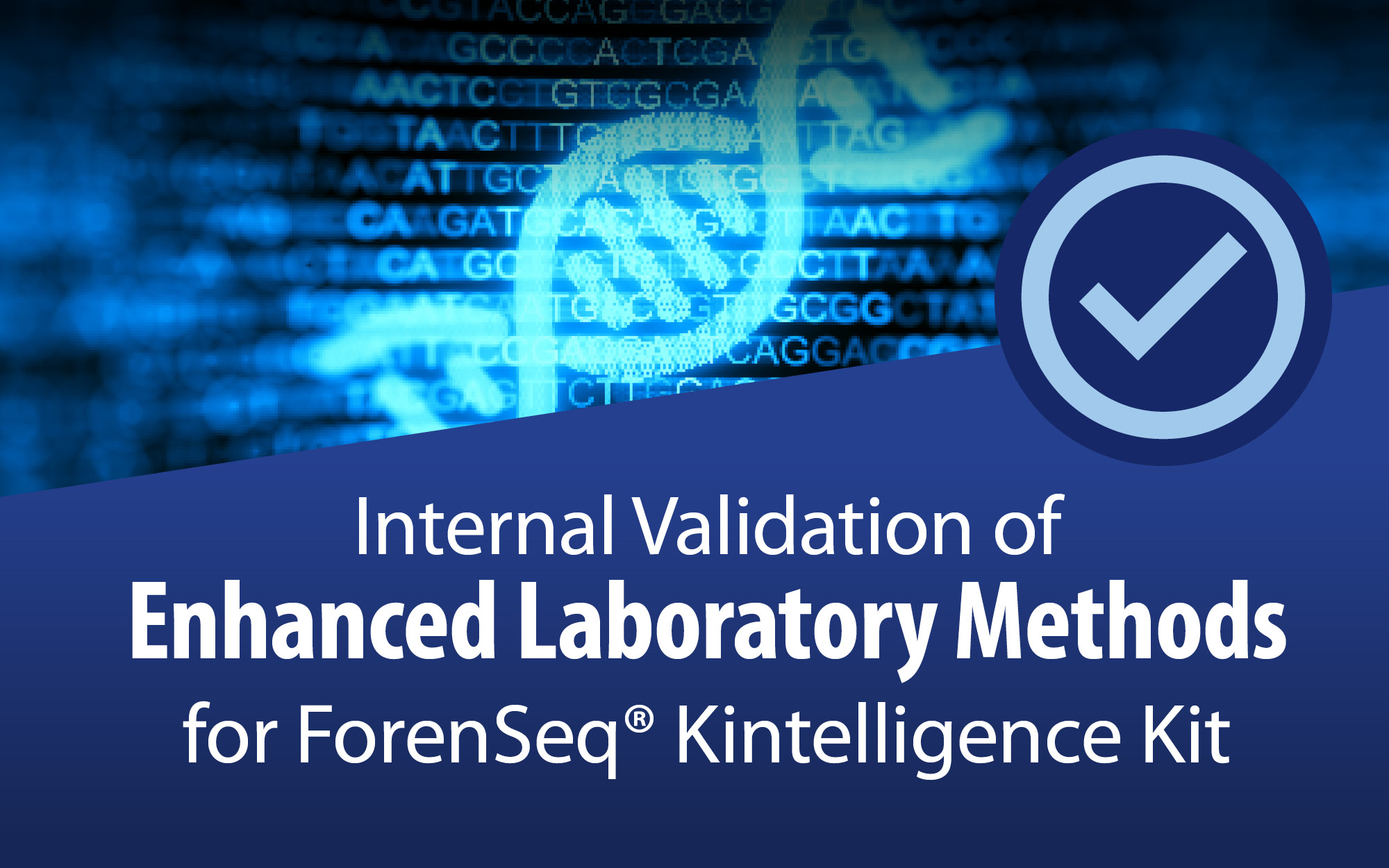
Kintelligence
The CAG published an internal validation of the Verogen ForenSeq® Kintelligence workflow, performed in accordance with SWGDAM guidelines and FBI QAS. This FGG solution is based on next-generation sequencing technology which targets forensically relevant markers along with ancestry, identity, and phenotype markers to estimate kinship. Read paper.
For more information about SigSci validations, publications, and open source software, visit our Latest Research page.

